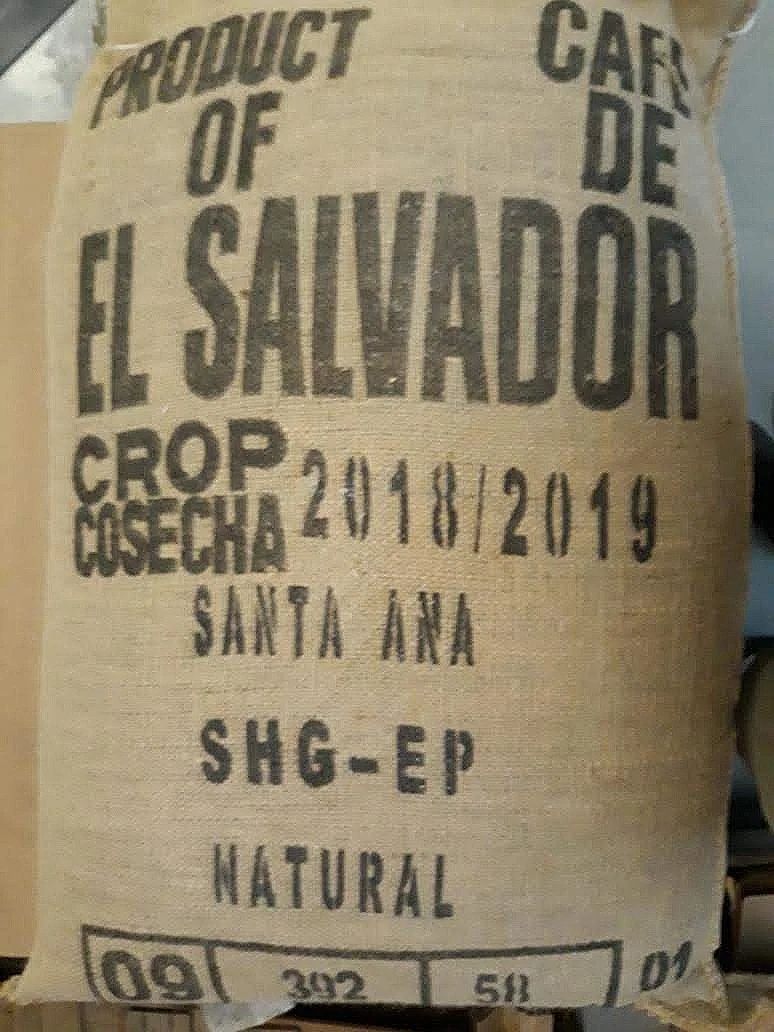Spotlight on...El Salvador de Volcán
Carrie Masek
Volcanoes. The name of our new coffee from El Salvador got me thinking about how many of our coffees are grown on or near volcanoes. Our Kona Pahala, of course, but also all our Indonesian coffees, and the coffees from Guatemala and Peru and Ecuador. The tropical portion of the “ring of fire” is full of great coffee growing areas. Turning to Africa, our Organic Congo Lake Kivu is also grown on the side of a volcano. What is it about volcanoes that coffee loves so much?
Altitude is part of it. Active volcanoes haven't had a chance to erode and they're pretty tall. Since Arabica coffee grows best at altitudes of at least 3000 feet above sea level, relatively high volcanic slopes provide just the right balance of cool temperatures with consistent amounts of sunlight. It works even better if the sunlight is filtered through a protective layer of leaves, as it is in the rain forests of Indonesia and Central America.
The soil is also important. Volcanic soil is rich in minerals that have often leached away from older mountain slopes. Volcanic soil also tends to have excellent drainage, because it contains vesicles, small cavities formed by gas bubbles in lava, which makes the soil porous and ideal for retaining water, but also allows the water to drain. This is great for coffee plants, because the roots tend to rot if they sit too long in ground water.
El Salvador de Volcán is grown between 3600 and 4000 feet above sea level, on the slopes of the tallest volcano in El Salvador. The Volcán de Santa Ana is still active, with the last recorded eruption occurring in 2005. With high altitude and fertile soil, the Volcán de Santa Ana has everything it takes to be a great place to grow coffee.
El Salvador de Volcán is a naturally processed coffee, so we expected a sweet coffee with more body than washed coffees from the same region. It surprised us a bit because, at a light roast, El Salvador de Volcán is a light bodied coffee with lively tangerine topnotes. The sweetness comes after that burst of citrus, with balancing notes of strawberry and cherry. Roasted a little darker, to a Full City or Vienna roast level, the coffee becomes smoother, with the body we expected and lovely cocoa richness. For those who love dark roasted coffees, El Salvador de Volcán can take the heat, for an even sweeter cup of coffee.
Do you enjoy coffee from El Salvador? Have you ever visited the Volcán de Santa Ana? If so, we'd love to hear from you. You can share your thoughts on the Facebook thread or in a comment on this blog. Or, if you'd like to share your opinion with the wider world, leave us a coffee review on Google or on your favorite review site. Not only do we value your opinions, but reviews help more people find us. Help us connect coffee lovers to fresh, quality coffee!
Thanks!
~ Carrie, Paul and all of us at Coffee by the Roast
For more information and photos of El Salvador's Santa Ana volcano, click here.
For more information on why coffee loves volcanoes, click here.
